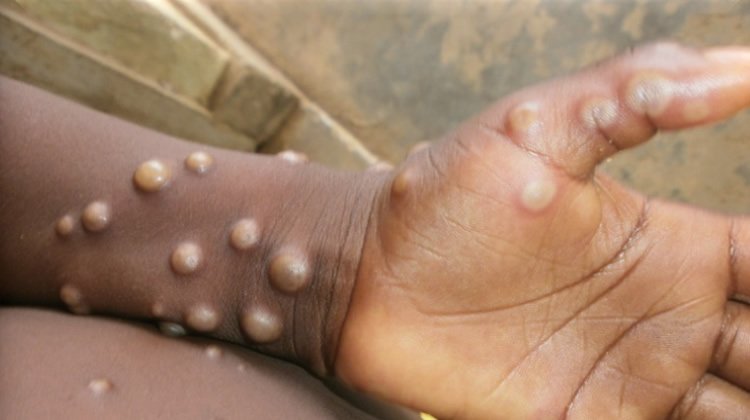On August 29, 2024, at Kavum Hospital in Kabale District, South Kivu Province, Democratic Republic of the Congo, Nsimile Nakajiba, 34, holds her sister Sifa Mwakasisi for pain relief inside a tent where she is being treated for mpox. (32 years old) has a stinging rash. (Photo: Reuters/Arlette Bassiji)
The African Centers for Disease Control and Prevention has announced an alarming rise in the number of MPOX virus infections across the continent, with the organization’s executive director Jean Kaseya warning that the situation is spiraling out of control. did.
In a message shared on It must be done,” he said.
From April to August, the virus spread to a further 12 countries, with more than 1,000 deaths recorded during this period.
Mr. Kasetani stressed the urgency of moving beyond discussions and promises and called for immediate action.
“Continuing meetings and discussions will not be successful. We are still discussing the content of the commitment. Next week we will finalize all these discussions and translate the commitment into concrete funding for both countries,” he said. , we need to turn it into tools and vaccines.” Added.
Africa CDC is a specialized technical agency under the African Union, responsible for strengthening the capacity of public health institutions across the continent.
Kenya is also one of the affected countries, reporting 14 Mpox cases and one death. Confirmed cases are spread across different counties: Nakuru (2), Kajiado (2), Bungoma (2), Taita Taveta (1), Busia (1), Nairobi (1) ), Mombasa (1 person), Makueni (1 person), Kericho (1), Kilifi (1), Uasin Gishu (1).
Of the cases, eight have fully recovered, while five are still undergoing treatment.
Health Minister Deborah Barrasa affirmed the country’s efforts to control the outbreak and said contact tracing efforts remain a priority.
“Of the 68 contacts listed, 61 have completed the required 21-day follow-up and three of them tested positive for Mpox. 30,237 travelers were tested in that time. Cumulatively, 1,362,657 travelers were tested since the beginning of the outbreak,” Barasa said.
Vaccination rate is low
Despite the growing threat, vaccination rates across the African region remain low. The Democratic Republic of the Congo, where the virus was first detected, recently received its first batch of 265,000 doses of the MVA-BN Mpox vaccine.
Limited access to vaccines continues to plague many African countries, leaving them dependent on donations from Western countries. The situation reflects the challenges faced during the COVID-19 pandemic, which many African countries have denounced as what they call “vaccine apartheid.”
Only Clade I of the virus has been recorded in Kenya, but it is also endemic in several African countries, including the Democratic Republic of the Congo, Burundi, Rwanda, Uganda, Nigeria, and Sierra Leone.
The country recently received Mpox test kits from the World Health Organization and USAID to strengthen its testing capacity and prevent sample backlogs.
Meanwhile, the Ministry of Health reaffirmed its commitment to protecting public health.
“As part of our ongoing efforts to control and contain the spread of infectious diseases, the Ministry is closely monitoring the MPOX situation across the country. “We continue to work tirelessly to ensure prompt treatment for confirmed cases,” Barrasa said.
He said health teams are carrying out rigorous testing at all points of entry and conducting contact tracing to prevent further spread, and working with county health departments to coordinate effective responses. he added.

